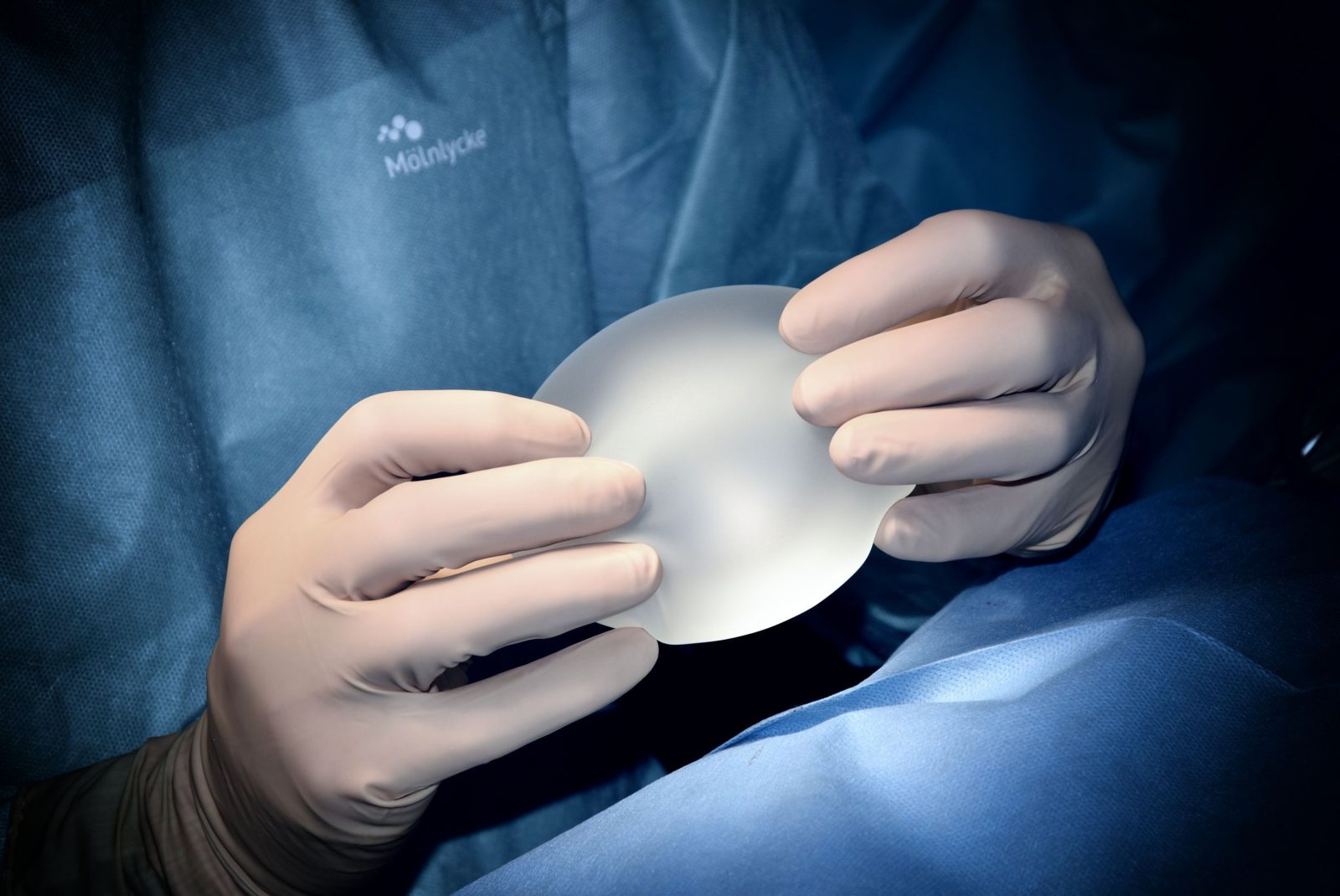When it comes to breast enhancement, women can get breast implants to achieve larger and fuller breasts. This choice is available for reconstructive purposes, particularly post-mastectomy due to breast cancer, and for cosmetic reasons.
For this article, we’ll be focusing exclusively on cosmetic breast augmentation. The content will delve into the available types of breast implants, detail the procedures they entail, and shed light on potential complications that could arise.
Exploring Saline and Silicone Breast Implants
Two fundamental variations exist within breast implants: saline and silicone gel implants.
Saline implants encompass silicone shells filled with a sterile saline solution known as salt water. Some implants come pre-filled, while others are filled during the procedure.
On the other hand, silicone gel implants consist of silicone shells that are filled with a cohesive silicone gel. While many women attest that a silicone gel breast offers a more authentic feel akin to natural breasts compared to saline implants, it’s worth noting that they carry a higher risk factor in the event of a leak.
Both saline and silicone implants offer a variety of sizes and come with the choice of either smooth or textured shells. Each alternative has advantages and disadvantages, making the decision a matter of personal preference.
Cost Considerations
The cost of breast implant surgery can vary based on location, the chosen doctor, and the type of implant selected.
Typically, the expenses for this procedure range between $5,000 and $10,000. However, it’s essential to note that breast augmentation is generally considered a cosmetic intervention. Thus health insurance rarely covers these costs.
Selecting the Appropriate Surgeon
When it comes to any cosmetic surgical procedure, one of the utmost priorities is finding a skilled and experienced plastic surgeon. While many doctors present themselves as plastic surgeons, it’s important to remember that any medical school graduate can claim this title.
Initiate your research for the ideal breast implant surgeon by compiling a list of potential candidates. Seek advice from friends who have undergone breast implant surgery and consult your primary physician or gynecologist. Once you’ve identified likely surgeons, arrange complimentary consultations with each practitioner.
Questions to Address Before Breast Implant Surgery
Engaging in a thorough questioning process can significantly contribute to achieving optimal outcomes, all while avoiding unexpected developments.
When you consult with various cosmetic surgeons, make sure to have two copies of this comprehensive list with you: one for your reference and the other for the surgeon’s benefit. Don’t hesitate to pose challenging queries. Openly discussing all concerns will enhance your overall ease, leaving you better prepared and self-assured as you approach the surgery, secure in the knowledge that you’ve made a well-informed decision.
Evaluating Qualifications and Expertise
- Does the American Board of Plastic Surgery accredit you? If not, could you provide the reasoning behind this decision?
- How extensive is your experience in performing breast implant surgery?
- On average, how many breast implant surgeries do you conduct each month?
- Can you share the average number of revisions you perform on your work?
- Have you ever been involved in any medical malpractice litigation?
- Do you possess hospital privileges within a recognized surgical facility? If so, could you name the affiliated hospitals?
Assessing the Surgeon’s Past Performance
- Can we review some before-and-after photographs from your previous cases?
- Could I contact some of your former breast implant patients for their insights?
- Is there a staff member who has undergone a similar procedure, and may I have a conversation with them?
- If I’m dissatisfied with the surgical outcomes, what options are available?
Exploring Breast Implant Options
- Considering my circumstances, would you recommend silicone breast implants or saline implants? What factors inform your suggestion?
- Based on my body frame, what breast size would you propose?
- Could there be a reduction in sensation in my nipples or breasts?
- Is breastfeeding possible after undergoing implant surgery?
- Do breast implants potentially affect the accuracy of mammogram results in detecting breast cancer?
- Is there a video available that provides information on breast implant surgery?
- What kind of warranty is offered for these breast implants, and are there associated fees for rupture?
Possible Complications and Risks of Breast Implants
- Could you provide information about the potential complications associated with breast implant surgery?
- Is there a way to minimize the risk of breast implant rupture, rippling, or wrinkling?
- Are there specific complications related to breast implants that I should be informed about?
- If I experience any breast implant complications, what is your policy?
- Do you offer coverage for associated expenses? Would you recommend obtaining a cosmetic surgery complication insurance policy?
Preparation for Breast Implant Surgery
- What dietary and lifestyle adjustments will be necessary before undergoing breast implant surgery?
- What recommendations for addressing swelling, bruising, and discomfort post-surgery?
- Will the anesthesia be impacted by my regular medications like birth control pills, antidepressants, or diet pills?
- What duration of time off from work would you recommend following the surgery?
Breast Implant Procedure
- Could you inform me about the location of my breast implant surgery and whether the surgical facility is accredited?
- Is the facility equipped to handle life-threatening emergencies?
- In the event of any complications, which hospital would I be transferred to?
- Will I be administered general anesthesia, and will a certified anesthesiologist administer it?
Recovery After Breast Implant Surgery
- In an emergency, how can I contact you once I’ve returned home?
- What is the estimated duration for complete healing?
- When can I safely resume my regular exercise regimen?
Financial Aspects of Breast Implants
- Please provide details about what the surgical fee covers and what expenses are not included.
- If I require a revision surgery due to dissatisfaction, does the initial fee cover that?
- Does the initial fee cover the cost of implant removal?
- If post-surgery breast implant complications arise, are they covered by the initial fee?
- What is the necessary deposit amount, and when should it be submitted?
- Do you provide financing options or require full payment in advance? Are credit card payments accepted?
- In case of a change of plans, would my deposit be subject to a refund?
Understanding the Breast Implant Procedure Process
Since breast development often continues until the late teens or early twenties, the FDA mandates a minimum age of 18 for saline-filled breast implant augmentation and 22 for a silicone implant.
Before undergoing your breast enlargement procedure, a preliminary medical assessment will be conducted by your surgeon. This meeting allows you to express your desires and gain insights from the doctor. You might be advised to cease certain medications a few days or weeks before the surgery.
Breast augmentation can be performed as an outpatient procedure, or you might spend a night in the hospital.
The surgery usually lasts 1 to 2 hours and is generally conducted under general anesthesia, ensuring you are comfortably “asleep” and pain-free.
The surgeon will create an incision beneath your breasts, under your arms, or around your nipples, based on your physique, implant type, and desired enlargement.
Positioning the breast implant above or below your chest muscle, the surgeon will secure it in place. Once the implant is positioned correctly, the incisions will be sealed using sutures or surgical tape.
Recovery Process Following Breast Implantation
Post-surgery, your breasts will be gently wrapped in gauze. In some cases, drainage tubes might be utilized; these will be removed within a few days. You might be advised to wear a surgical bra as part of the healing process.
For a few days after your breast augmentation surgery, it’s crucial to take things easy. Activities such as heavy lifting should be avoided for a period of up to 6 weeks after receiving your implants.
Over-the-counter pain relievers, like acetaminophen, can aid in alleviating any discomfort you experience. Additionally, your physician may prescribe specific pain medication for you.
Anticipate a certain amount of swelling in the surgical area; however, the swelling should gradually subside with time while the scars fade.
Potential Complications
Despite being a cosmetic procedure, breast implant surgery does carry potential risks, such as:
- Breast pain
- Alterations in nipple and breast sensation
- Formation of scar tissue leading to hardening around the implant
- Development of scars
- Bleeding
- Risk of infection
- Challenges regarding implant size or shape (resulting in asymmetry, for instance)
- The rare possibility of Associated Anaplastic Large-Cell Lymphoma (AALCL), potentially linked to textured implants
- Occurrence of breast implant illness, which could manifest as fatigue, memory loss, rashes, and cognitive impairment
Breast implants have the potential to rupture and leak over time. In saline implant rupture, the saline content is typically harmlessly absorbed by the body. On the other hand, a silicone leak might remain contained within the implant shell or seep outside its confines. A ruptured saline implant will visibly deflate, while silicone implants can rupture silently, often without noticeable symptoms.
Maintenance
It’s important to note that breast implants are not intended for lifelong use. Circumstances such as complications or natural changes in breast size and shape might necessitate implant replacement.
Regular mammogram screenings should be carried out annually, supplemented by an MRI or ultrasound scan around five to six years post the initial implant procedure for individuals with silicone gel-filled implants. Subsequently, these additional scans are recommended every two to three years to detect potential silent ruptures. An MRI is advised if any symptoms emerge or ultrasound results regarding implant integrity are inconclusive. Should an implant rupture occur, either removal or replacement will be necessary.
Furthermore, it’s worth acknowledging that breast implants might impact breastfeeding capabilities.
















Find Us on Socials